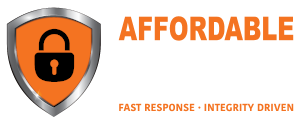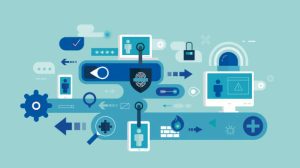In today’s rapidly evolving digital landscape, businesses are constantly seeking innovative ways to enhance efficiency, productivity, and connectivity. One of the most transformative technologies driving this evolution is the Internet of Things (IoT). IoT refers to the interconnected network of devices embedded with sensors, software, and other technologies, enabling them to collect and exchange data over the internet. While the benefits of IoT extend across various domains, its impact on business IT systems is particularly profound, revolutionizing the way organizations operate, manage data, and deliver services.
Enhanced Data Collection and Analysis:
One of the primary ways IoT is reshaping business IT systems is through enhanced data collection and analysis. With IoT-enabled devices deployed throughout their operations, businesses can gather vast amounts of real-time data from diverse sources. These data streams provide valuable insights into various aspects of business operations, including supply chain management, customer behavior, equipment performance, and environmental conditions.
By leveraging advanced analytics tools, businesses can process this data to extract actionable insights, enabling informed decision-making and predictive maintenance strategies. For example, in manufacturing, IoT sensors can monitor equipment performance, detect anomalies, and schedule maintenance before a breakdown occurs, minimizing downtime and optimizing operational efficiency.
Improved Operational Efficiency:
IoT integration into business IT systems streamlines processes and improves operational efficiency across industries. Automation plays a crucial role in this regard, as IoT devices can communicate with each other and with centralized systems to execute tasks without human intervention. This automation not only reduces manual effort but also minimizes errors and accelerates response times.
For instance, in retail, IoT-enabled inventory management systems can automatically track stock levels, reorder products when inventory runs low, and optimize shelf space based on sales data and customer preferences. Similarly, in healthcare, IoT devices such as wearables and medical sensors facilitate remote patient monitoring, enabling healthcare providers to deliver proactive and personalized care while reducing hospital readmissions.
Enhanced Customer Experience:
IoT-enabled business IT systems empower organizations to deliver enhanced customer experiences by personalizing products and services and providing seamless interactions across multiple touchpoints. Through IoT-connected devices, businesses can gather data on customer preferences, behavior, and usage patterns, enabling them to tailor offerings to individual needs and preferences.
For example, in the hospitality industry, IoT devices in hotel rooms can adjust room temperature, lighting, and entertainment options based on guest preferences collected from previous stays. In the automotive sector, IoT-enabled vehicles offer features such as predictive maintenance alerts, remote diagnostics, and personalized infotainment systems, enhancing the overall driving experience and fostering customer loyalty.
Challenges and Considerations:
While the potential benefits of IoT on business IT systems are significant, implementing and managing IoT infrastructure pose several challenges. Security concerns related to data privacy, network vulnerabilities, and device authentication must be addressed to safeguard sensitive information and prevent unauthorized access. Additionally, interoperability issues between different IoT devices and platforms can hinder seamless integration and data exchange.
Moreover, the sheer volume of data generated by IoT devices poses challenges in terms of storage, processing, and analysis. Businesses must invest in scalable IT infrastructure and advanced analytics capabilities to derive actionable insights from the vast amounts of data generated by IoT deployments.
The impact of IoT on business IT systems is profound and far-reaching, transforming the way organizations operate, innovate, and deliver value to customers. By enabling enhanced data collection and analysis, improving operational efficiency, and enhancing customer experiences, IoT is reshaping business processes across industries. However, to fully realize the potential of IoT, businesses must address security concerns, interoperability challenges, and scalability issues to build robust and resilient IoT ecosystems that drive sustainable growth and competitive advantage in the digital age.





